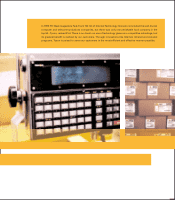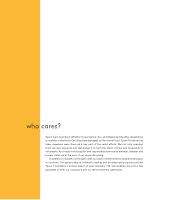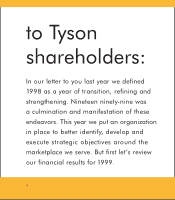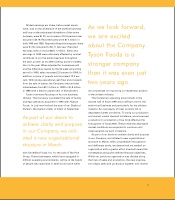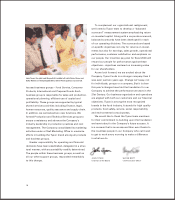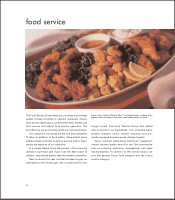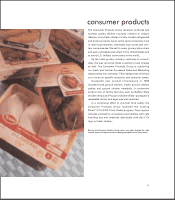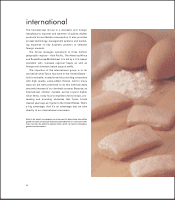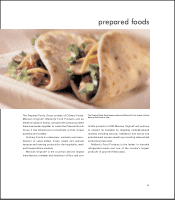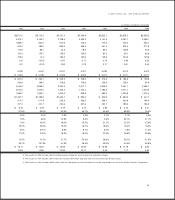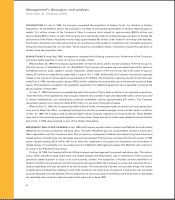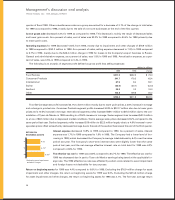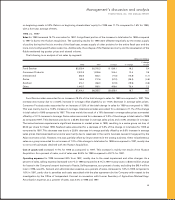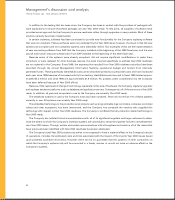Tyson Foods 1999 Annual Report Download - page 24
Download and view the complete annual report
Please find page 24 of the 1999 Tyson Foods annual report below. You can navigate through the pages in the report by either clicking on the pages listed below, or by using the keyword search tool below to find specific information within the annual report.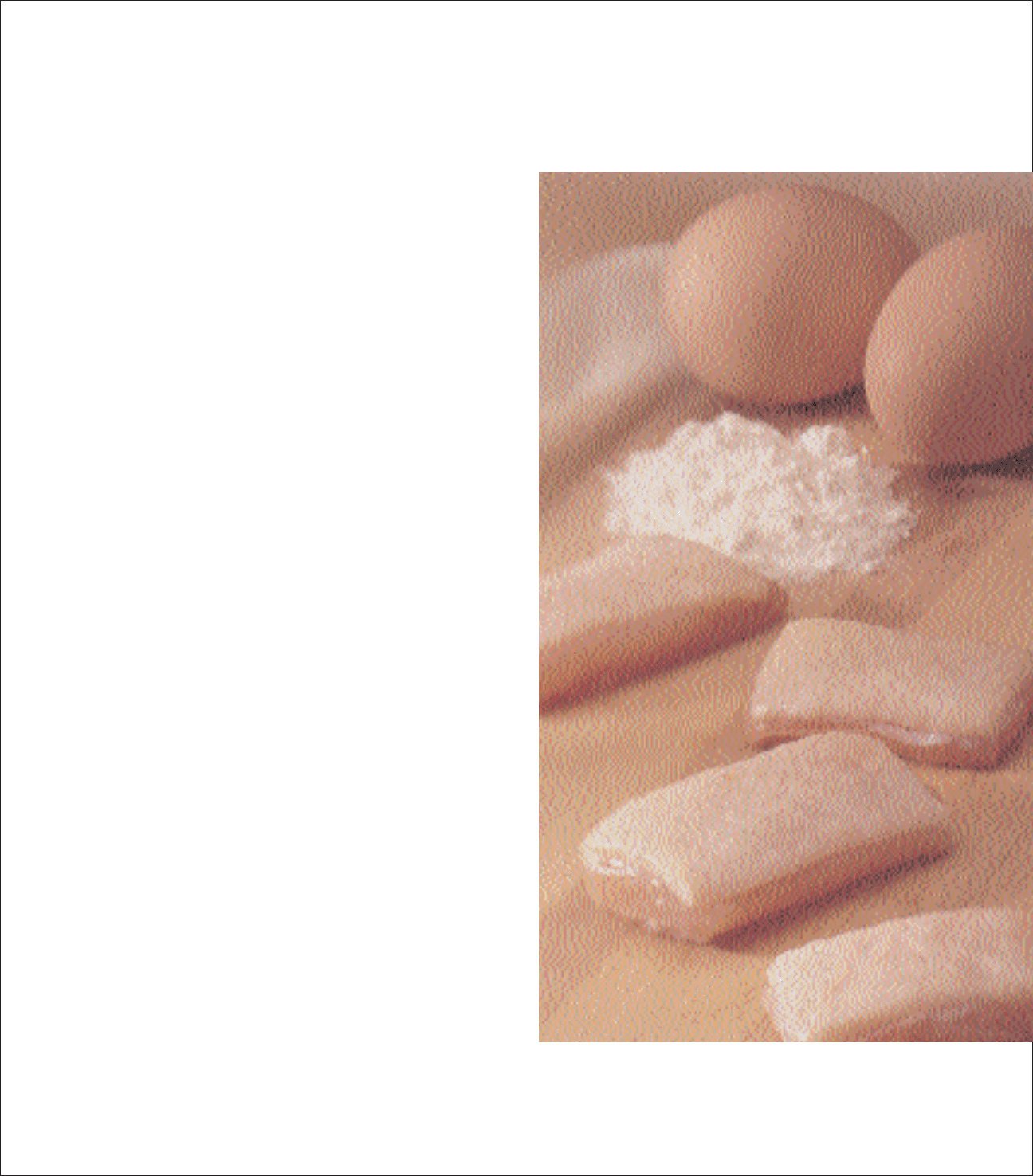
22
international
The International Group is a domestic and foreign
manufacturer, exporter and marketer of quality chicken
products for worldwide consumption. It also provides
process technology, management systems and market-
ing expertise to key business partners in selected
foreign markets.
The Group manages operations in three distinct
geographic regions – Asia Pacific, The Americas/Africa
and Russia/Europe/Middle East. It is led by a U.S.-based
president who oversees regional heads as well as
foreign and domestic-based support staffs.
The objective of the international group is to do
worldwide what Tyson has done in the United States –
build a valuable, trusted brand by providing consumers
with high quality, value-added chicken. And in many
ways we are well positioned to do this internationally
precisely because of our domestic success. Because, as
international chicken markets evolve toward higher
value items, many local competitors face product, pro-
cessing and branding obstacles that Tyson Foods
cleared years ago as it grew in the United States. That’s
a big advantage. And it’s an advantage that we take
directly to our international consumers.
Kirimi is the world’s most popular use of leg meat. In Japan alone, nine million
pounds of kirimi and karaage (battered and fried kirimi) are sold each week.
Tyson now has the ability to produce kirimi, which can lead to tremendous
growth in Asian markets.



